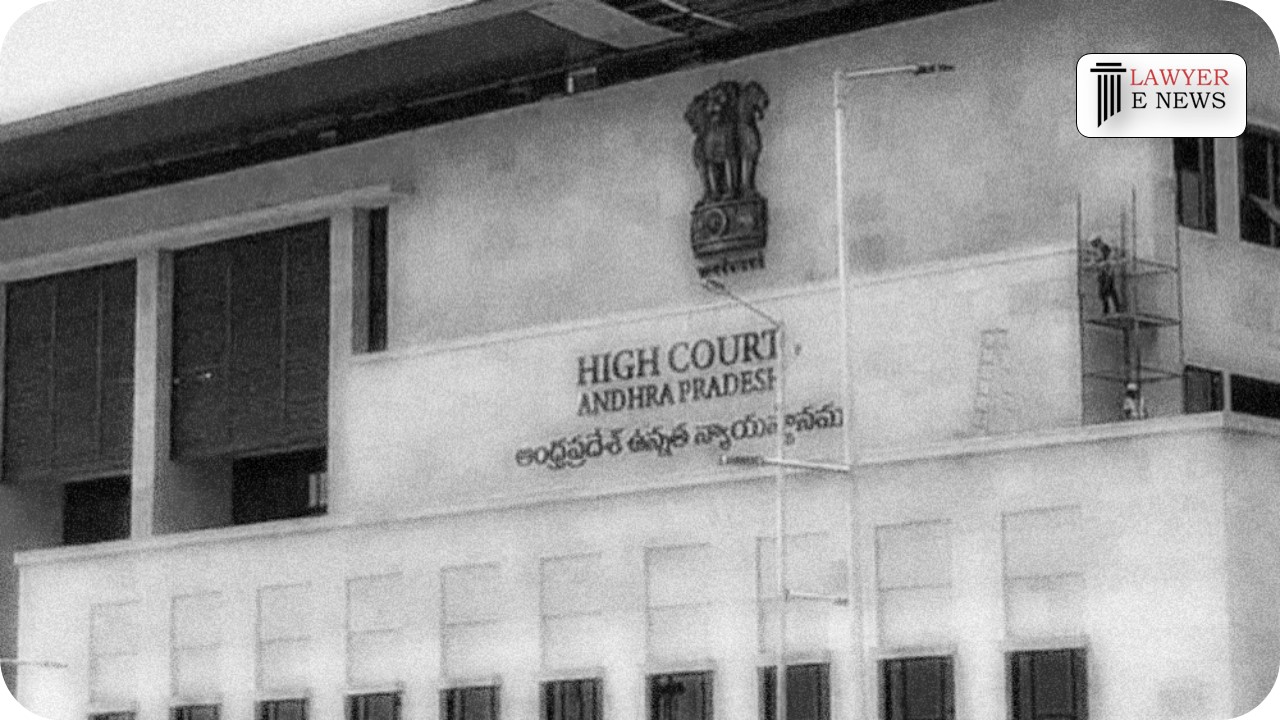-
by sayum
14 February 2026 2:22 PM



Appeal in Employer’s Medical Expenses Recovery Case Overturned by High Court, Emphasizes Absence of Contractual Obligation
The High Court of Andhra Pradesh delivered a significant judgment today, absolving New India Assurance Company Ltd. From liability in a case involving the recovery of medical expenses and compensation paid by an employer to its employees following a motor vehicle accident. The bench, led by Justice Venuthurumalli Gopala Krishna Rao, emphasized the absence of a contractual obligation between the insurance company and the employer under the specific policy in question.
The case originated from a suit filed by Hindusthan Steel Works Construction Limited (HSCL) for the recovery of medical expenses and compensation totaling Rs.2,97,695.65. These costs were incurred after an accident on January 16, 2000, involving a Mahindra Jeep (registration No. ADD 1810) hired by HSCL and insured by New India Assurance under an Act policy. The accident occurred due to rash and negligent driving by the jeep’s driver, resulting in injuries to HSCL employees.
Justice Gopala Krishna Rao noted that the policy in question was an Act policy with limited liability, not a comprehensive one. “The policy was an act policy, and the insurer’s liability is limited to Rs.5,000 per passenger,” the judgment stated. The court found no evidence of any additional coverage that would extend to medical expenses incurred by the employer.
The court stressed that there was no contractual relationship between HSCL and New India Assurance regarding coverage under the Workmen Compensation Act. “There is no contract of insurance between the plaintiff and the third defendant insurance company,” Justice Rao emphasized. The absence of such a contract meant that the insurer was not obligated to indemnify HSCL for the expenses incurred.
HSCL’s own admissions during the trial played a crucial role in the court’s decision. The company acknowledged that it was responsible for the medical expenses of its employees during the course of employment and that no separate insurance policy was obtained under the Workmen Compensation Act. “The plaintiff company is liable to meet all the medical expenses incurred by their staff members for sustaining any injuries during the course of employment,” the court reiterated.
The court discussed the statutory limitations of the insurance policy under the Motor Vehicles Act, 1988, and the Code of Civil Procedure, 1908. It highlighted that the liability of an insurer could only be statutory or contractual, and in this case, no statutory obligation extended to the employer’s claims. “The statutory policy only covers the employees of the insured, either employed or engaged by him in a goods carriage,” the court noted, referencing the Supreme Court’s ruling in Sanjeev Kumar Samrat vs. National Insurance Company Limited.
The judgment also pointed out that none of the injured employees had filed claims with the Motor Accident Claims Tribunal, which further weakened the plaintiff’s position. “The injured ought to have filed a petition before the Motor Accident Claims Tribunal claiming compensation,” the court stated.
Justice Rao remarked, “In the absence of any contract in between the appellant and plaintiff, the appellant is not at all liable to pay any compensation to the plaintiff.”
The High Court’s decision to allow the appeal and set aside the trial court’s decree is a significant reaffirmation of the principles governing insurance liability and contractual obligations. By denying the employer’s claim, the judgment underscores the importance of clear contractual terms and the statutory limits of insurance policies. This decision will likely influence future cases involving similar disputes, clarifying the extent of an insurer’s liability in the absence of explicit contractual obligations.
Date of Decision: July 9, 2024
New India Assurance Company Ltd., Gajuwaka, Visakhapatnam vs. The General Manager, Hindusthan Steel Works Construction Limited and Others
